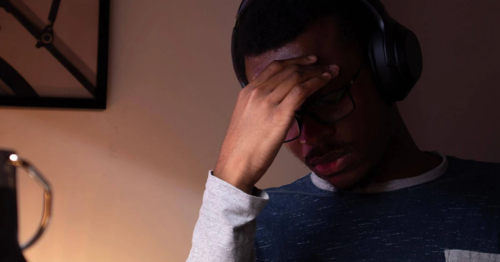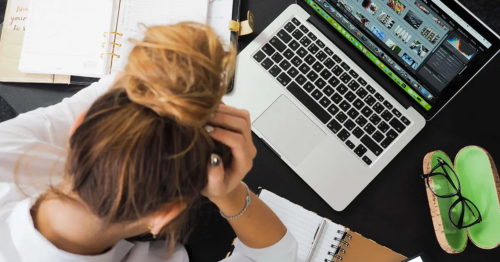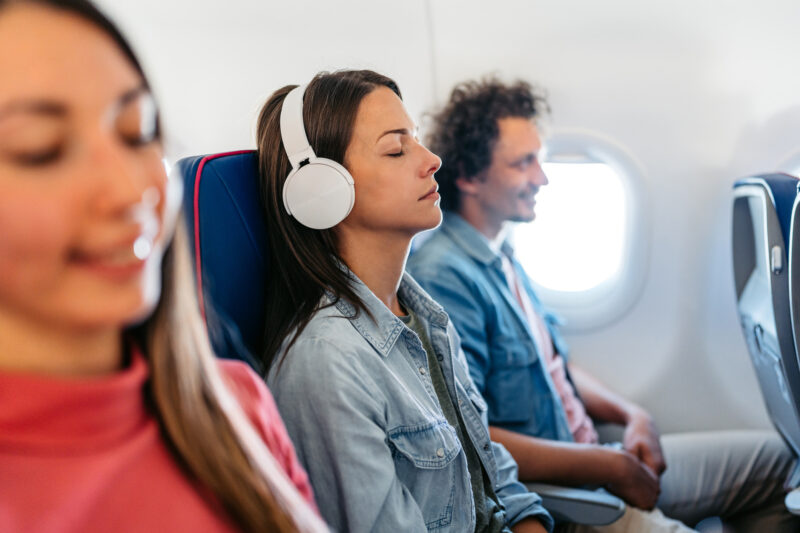
Table of Contents
Considering Flight Anxiety Medication? Read This

Written By: Ashley Laderer
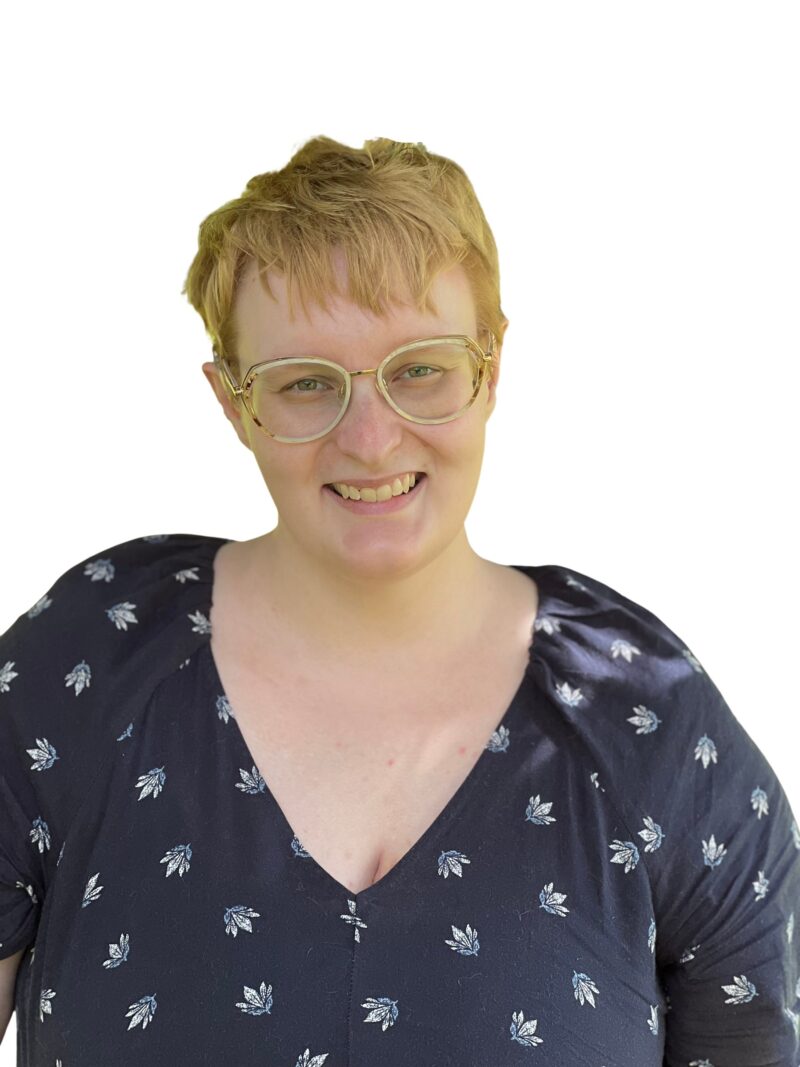
Clinically Reviewed By: Courtney Way
April 3, 2025
8 min.
Does flying freak you out? Keep reading to learn about flight anxiety medication options and non-medication tips to cope.
Learn more about our Clinical Review Process
Table of Contents
If you’re afraid of flying, you’re in good company (especially these days). It’s estimated that a whopping 25 million Americans have some degree of flight anxiety. While some anxious flyers can grin and bear it, others have more severe aerophobia (clinically known as aviophobia), where they may experience intense panic surrounding flights or stay grounded and avoid them altogether.
In cases of severe fear of flying, a mental healthcare provider might prescribe psychiatric medication to get anxiety to a more manageable level. Read on to learn about flight anxiety medication options and non-pharmaceutical options for coping with a fear of flying.

Don’t let your fear of flying hold you back
Virtual, intensive treatment and medication management as needed for severe anxiety.
When are people prescribed flight anxiety medication?
According to the American Psychological Association (APA), fear of flying is classified in the Diagnostic and Statistical Manual of Mental Disorders (DSM-5) as a “specific phobia, situational type.” Those with specific phobias have an extreme, irrational fear of their trigger –– in this case, flying in an airplane. They might experience intense anxiety or even have a panic attack when exposed to their fear. Or, they might avoid the fear altogether, never going on an airplane at all. This fear is out of proportion to the actual danger that comes along with flying.
Not everyone who experiences flight anxiety is a good candidate for medication. “Medication for flight anxiety is considered when the level of anxiety is a barrier to the patient’s ability to function or engage in necessary activities,” says Rebecca Holland, PMHNP-BC, a Charlie Health Psychiatric Mental Health Nurse Practitioner. “It may also be used when a patient’s anxiety is so severe it hinders their ability to effectively engage in psychotherapy.”
Additionally, psychiatric medication should always be viewed as a complementary aspect to therapy –– not a standalone treatment, Holland says. “Medication can be used as a bridge when therapy alone isn’t sufficient or feasible in the short term,” she adds.
What are common flight anxiety medication options?
The most commonly prescribed flight anxiety medications are a class of medications called benzodiazepines, like Xanax and Ativan, Holland says. However, there are a few other options, too, like beta blockers or an anti-anxiety medication called hydroxyzine.
Benzodiazepines
Benzodiazepines (colloquially referred to as “benzos”) are sedative drugs that are central nervous system depressants, meaning they slow down activity in the brain and nervous system. They also boost the activity of a chemical messenger in the brain called GABA, which further promotes relaxation. Holland says two commonly used benzodiazepines are alprazolam (Xanax) and lorazepam (Ativan) since they act quickly. Other benzodiazepines prescribed for anxiety are clonazepam (Klonopin) and diazepam (Valium).
“However, their use should always come with an in-depth discussion about risks, dependency potential, and appropriate use,” Holland says. This is because benzos are controlled substances with a high risk for misuse, dependence, and addiction. “Benzos can also impair coordination or judgment, which is often not ideal in travel situations,” she adds. Benzodiazepines are typically taken “as needed” in high-anxiety situations.
Beta-blockers
Beta-blockers are a class of medications that are typically used for treating heart-related conditions like high blood pressure or irregular heart rhythms. However, they are also prescribed off-label for certain cases of anxiety. This means that even though a medication isn’t FDA-approved for a specific use, a provider may still prescribe it.
“Beta blockers such as propranolol are a fabulous alternative, especially for patients who experience anxiety with significant somatic symptoms like rapid heartbeat, tremor, and sweating,” Holland says. These medications only address the physical symptoms of anxiety –– they don’t alter brain chemistry or the central nervous system like benzos do. Therefore, beta blockers don’t address emotional or cognitive anxiety symptoms. These medications are also taken on an as-needed basis for heightened anxiety.
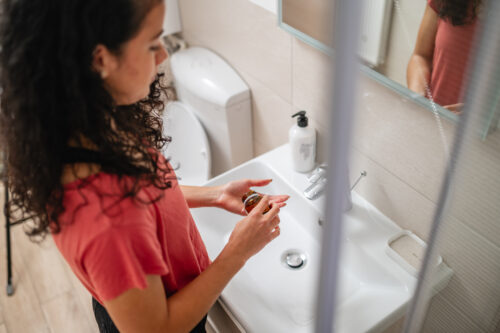
Hydroxyzine
Hydroxyzine is an antihistamine medication that’s FDA-approved for use as an anti-anxiety medication. “If the anticipatory anxiety lasts several days, such as building up before the flight, hydroxyzine can also be used, as it carries fewer long-term risks, ” Holland says.
Your provider will determine whether it’s best for you to take hydroxyzine regularly or as needed.
Over-the-counter anxiety relief options
Although they won’t be as potent as prescription medication, some over-the-counter products might help with some anxiety relief. “Melatonin is often a suggestion for individuals who do not want benzos, have contraindications for benzos, or who cannot tolerate other options,” Holland says. Plus, melatonin may help you sleep on the plane.
Additionally, many people use CBD (cannabidiol) products to help with anxiety. “These options provide calming effects for some, but their efficacy is largely anecdotal, and quality control of CBD products varies widely,” Holland adds.
However, make sure to consult your healthcare provider before taking any herbal or over-the-counter supplements, especially if you’re taking any prescription medication, Holland says. You’ll want to make sure there are no drug interactions.
How can you cope with flight anxiety without medication?
It’s important to note that medication is not a cure-all for flight anxiety. Rather, medication acts like a band-aid, temporarily helping the issue. “Benzos and other medications can provide fast relief, but they do not address the root cause of the anxious symptoms,” Holland says.
To address the root cause, relaxation techniques such as deep breathing exercises, fidget tools, and various types of therapy can be effective complements to medication in managing flight anxiety.
Therapy for fear of flying
Coping skills for fear of flying
-
- Cognitive behavioral therapy (CBT): Identifies and challenges irrational thoughts and teaches practical tools for managing anxiety during flights.
-
- Exposure therapy: Gradually exposes people to flying-related triggers to reduce fear.
-
- Eye movement desensitization and reprocessing (EMDR): Helps process trauma-related flight anxiety through bilateral stimulation.
-
- Deep breathing techniques
-
- Grounding techniques
-
- Mindfulness meditation
-
- Aviation safety education
Therapy for fear of flying
Three types of therapy that can help with flight anxiety are cognitive behavioral therapy (CBT), exposure therapy, and eye movement desensitization and reprocessing (EMDR), says
Bree Williams, LPCA, a Charlie Health Group Facilitator.
CBT for flight anxiety
“CBT focuses on identifying irrational or catastrophic thoughts and replacing them with more balanced, fact-based thinking,” Williams says. “It directly challenges the thought patterns that fuel anxiety and provides practical tools to regulate fear before and during the flight.
By identifying and challenging these irrational thoughts around flying, you’ll reduce anxiety and gain confidence to go on planes. CBT can also help you reduce your overall anxiety levels, especially if you also struggle with another anxiety disorder, like generalized anxiety disorder or panic disorder.
Exposure therapy for flight anxiety
“Exposure therapy is a form of CBT that involves gradually exposing a person to the source of their fear in a safe and controlled way,” says Williams. “For flight anxiety, this might include watching videos of planes, visiting an airport, or using virtual reality flight simulations before progressing to actual flying.”
Many people with a fear of flying avoid taking flights, which only fuels the fear more and reinforces anxiety in the brain. Williams says that gradual exposure therapy counteracts this and helps your brain learn that flying does not equal danger. With this, your anxiety will lessen.
EMDR for flight anxiety
Eye movement desensitization and reprocessing (EMDR) is a unique therapy developed specifically to help people process memories of traumatic events. It uses bilateral (side-to-side) stimulation, either through eye movements, sounds, or touch, alongside recalling a traumatic event.
“For individuals whose flight anxiety is rooted in past trauma or a specific flying-related event, EMDR helps the brain reprocess traumatic experiences or fearful associations tied to flying,” Williams says. This often leads to a significant relief from anxiety symptoms linked to the trauma, she adds.
Coping skills for fear of flying
Coping skills like deep breathing, grounding techniques, and education can help with the fear of flying. There are some examples of skills to try.
Deep breathing techniques
You can use your breath as a tool to help your mind and body calm down. “When anxiety spikes, our breathing becomes shallow,” Williams says. “Deep, intentional breaths reduce physical symptoms like rapid heartbeat and help regain a sense of control.”
One technique she recommends is box breathing:
- Inhale for 4 seconds
- Hold for 4 seconds
- Exhale for 4 seconds
- Hold for 4 seconds
- Repeat as needed
Or, you could try 4-7-8 breathing:
- Inhale through the nose for 4 seconds
- Pausing and holding for 7 seconds
- Slowly exhale through the mouth for 8 seconds
You can do these on your own or use guided audio or videos online.
Grounding techniques
Grounding is a tool that shifts your focus from anxious thoughts to the present moment, calming your mind by engaging your senses, Williams says. One common example that she recommends is the 5-4-3-2-1 grounding technique, which involves naming:
- 5 things you can see
- 4 things you can touch
- 3 things you can hear
- 2 things you can smell
- 1 thing you can taste
You can also try really leaning into one of your senses, like touch or taste. For example, you can hold an ice pack or ice cubes in your hand (if you’re in the air, you can ask a flight attendant for ice cubes and go to the bathroom), notice how cold it feels, and let your brain focus on that. Or, you can try eating sour candy (pack some in your carry-on) and allow your focus to redirect to the intense taste. The idea is to think of things in the present moment that get you out of your anxiety spiral.
Meditation
Mindfulness meditation is a great way to reduce anxiety. Williams suggests meditating before a flight to get you into a calmer state of mind before you board. You can even find guided meditations that are specific to the fear of flying online or on meditation apps.
Educate yourself on aviation safety
Educating yourself can serve as a coping tool to ease your mind. “Understanding the rigorous safety measures and protocols in place can help alleviate fears,” Williams says. “Aviation authorities continuously analyze data and implement improvements to enhance passenger safety.” Reading up on these specifics might help you feel safer on a plane.
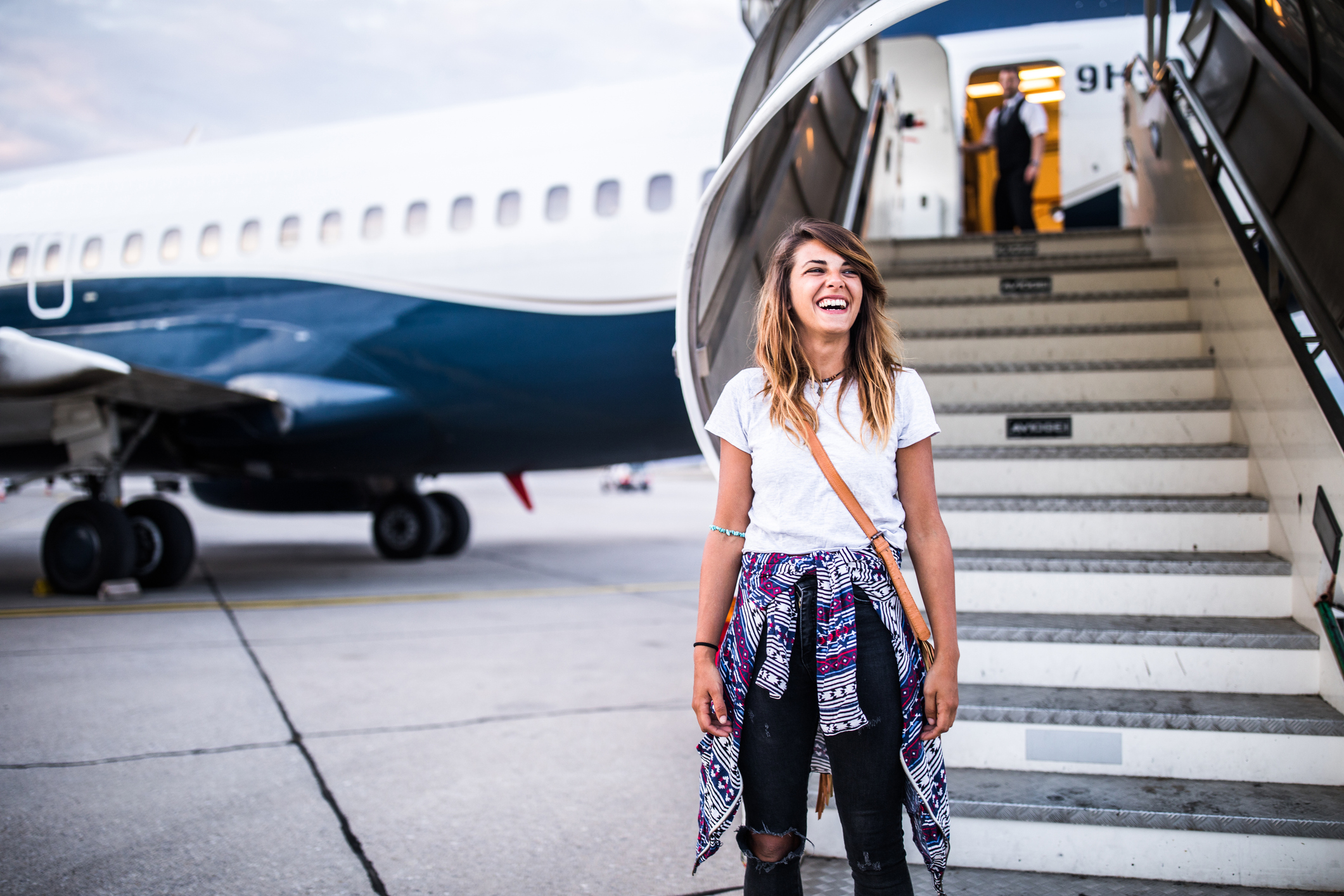
Anxiety treatment at Charlie Health
If you’re struggling with severe anxiety, Charlie Health is here to help. Charlie Health’s virtual Intensive Outpatient Program (IOP) provides more than once-weekly mental health treatment for people and families dealing with serious mental health conditions, including anxiety disorders like specific phobias, like fear of flying.
Our compassionate clinicians incorporate evidence-based therapies (like CBT and exposure therapy) into individual counseling, family therapy, and group sessions. We also offer medication management to clients as needed. With this kind of holistic treatment, managing your anxiety is possible. Fill out the form below or give us a call to start your journey to anxiety relief today.
References
https://my.clevelandclinic.org/health/diseases/22431-aerophobia-fear-of-flying
https://dictionary.apa.org/fear-of-flying
https://www.frontiersin.org/journals/psychology/articles/10.3389/fpsyg.2016.00754/full https://www.ncbi.nlm.nih.gov/books/NBK470159/
https://www.ncbi.nlm.nih.gov/books/NBK532906/
https://www.apa.org/ptsd-guideline/treatments/eye-movement-reprocessing
